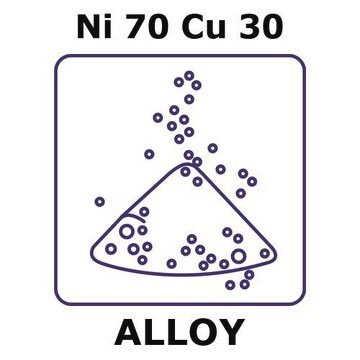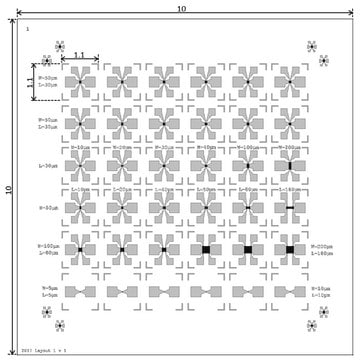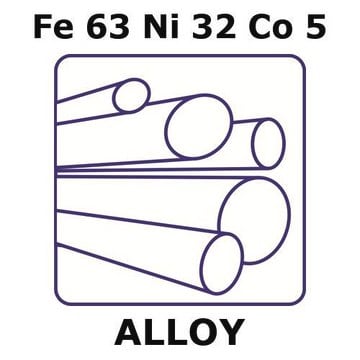GF99671619
Copper - O.F.H.C.
rod, 50mm, diameter 50.0mm, as drawn, 99.95+%
Synonim(y):
Copper, CV007980
Zaloguj sięWyświetlanie cen organizacyjnych i kontraktowych
About This Item
Wzór empiryczny (zapis Hilla):
Cu
Numer CAS:
Masa cząsteczkowa:
63.55
Numer MDL:
Kod UNSPSC:
12141711
Identyfikator substancji w PubChem:
NACRES:
NA.23
Polecane produkty
Próba
≥99.95%
Postać
rod
producent / nazwa handlowa
Goodfellow 996-716-19
rezystywność
1.673 μΩ-cm, 20°C
tw
2567 °C (lit.)
mp
1083.4 °C (lit.)
gęstość
8.94 g/mL at 25 °C (lit.)
ciąg SMILES
[Cu]
InChI
1S/Cu
Klucz InChI
RYGMFSIKBFXOCR-UHFFFAOYSA-N
Opis ogólny
For updated SDS information please visit www.goodfellow.com.
Informacje prawne
Product of Goodfellow
Certyfikaty analizy (CoA)
Poszukaj Certyfikaty analizy (CoA), wpisując numer partii/serii produktów. Numery serii i partii można znaleźć na etykiecie produktu po słowach „seria” lub „partia”.
Masz już ten produkt?
Dokumenty związane z niedawno zakupionymi produktami zostały zamieszczone w Bibliotece dokumentów.
Jonas Duus Stevens Lekfeldt et al.
Environmental pollution (Barking, Essex : 1987), 194, 78-85 (2014-08-06)
Copper (Cu) is known to accumulate in agricultural soils receiving urban waste products as fertilizers. We here report the use of the leucine incorporation technique to determine pollution-induced community tolerance (Leu-PICT) to Cu in a long-term agricultural field trial. A
Giulia Cheloni et al.
Aquatic toxicology (Amsterdam, Netherlands), 155, 275-282 (2014-07-30)
The present study showed the important role of light intensity and spectral composition on Cu uptake and effects on green alga Chlamydomonas reinhardtii. High-intenisty light (HL) increased cellular Cu concentrations, but mitigated the Cu-induced decrease in chlorophyll fluorescence, oxidative stress
Lelita T Braiterman et al.
Proceedings of the National Academy of Sciences of the United States of America, 111(14), E1364-E1373 (2014-04-08)
Wilson disease (WD) is a monogenic autosomal-recessive disorder of copper accumulation that leads to liver failure and/or neurological deficits. WD is caused by mutations in ATP7B, a transporter that loads Cu(I) onto newly synthesized cupro-enzymes in the trans-Golgi network (TGN)
Julie E Gleason et al.
Proceedings of the National Academy of Sciences of the United States of America, 111(16), 5866-5871 (2014-04-09)
The human fungal pathogens Candida albicans and Histoplasma capsulatum have been reported to protect against the oxidative burst of host innate immune cells using a family of extracellular proteins with similarity to Cu/Zn superoxide dismutase 1 (SOD1). We report here
Alina Fedoseienko et al.
Annals of the New York Academy of Sciences, 1314, 6-14 (2014-04-05)
Copper is an important cofactor in numerous biological processes in all living organisms. However, excessive copper can be extremely toxic, so it is vital that the copper level within a cell is tightly regulated. The damaging effect of copper is
Nasz zespół naukowców ma doświadczenie we wszystkich obszarach badań, w tym w naukach przyrodniczych, materiałoznawstwie, syntezie chemicznej, chromatografii, analityce i wielu innych dziedzinach.
Skontaktuj się z zespołem ds. pomocy technicznej





